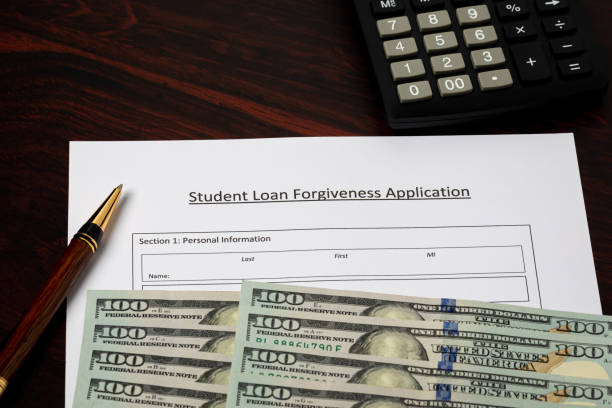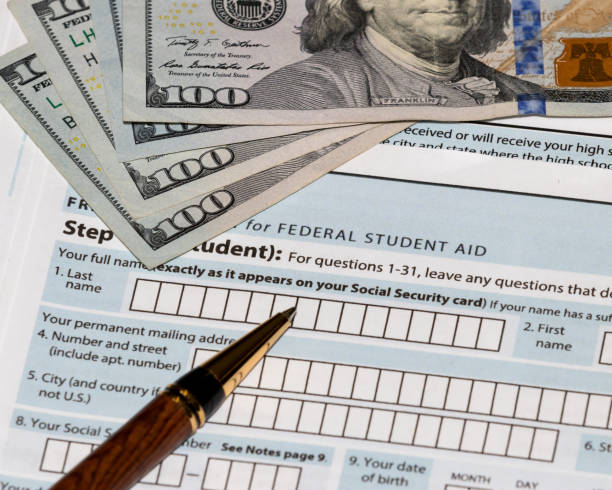Federal student loans are considered a type of private loan because they aren’t backed by the government. Instead, students must pay back their loans with interest over time. It is important for everyone who has been accepted into college to understand that there are several types of student loans available, which means you may be able to choose the best option for you.
While federal student loans are still popular, some people prefer to take out private loans instead. Private loans require the borrower to put up a larger amount than what is required on a federal loan and don’t come with any guarantees from the lender. However, these loans usually allow borrowers to get better rates and terms so it can be worth looking into.
The process of applying for financial aid is different depending on whether you are getting a loan from the government or a private bank.
Will Student Loan Pause Be Extended?
When you graduate from college, you’re likely to have a large amount of debt. If this is the case, then you’ll need to make sure that you pay off your student loans as quickly as possible. This article explains why.
It’s important for students to realize that their federal student loans will never go away. As long as you are enrolled in school, you must continue making payments on them. However, once you complete your studies, you can start to focus more on paying down these debts.
If you take longer than six years to repay your student loans, then the government may automatically suspend the repayment process.
This means that you won’t be required to make any additional payments. But, if you want to keep your student loan balance low, you should try and finish your education within a short period of time.
If you do decide to extend your payment plan, you can apply for this by contacting your lender. You might also consider asking for help from your family or friends.
Is Biden Going to Forgive Student Loans?
A lot of students have been wondering whether or not President Obama will be able to help them with their federal student loan debt. After all, he is the president of the United States. He should know how to handle things like this.
However, it appears that the answer is no. According to a recent report from CNN, the White House isn’t planning on doing anything about the issue.
While it’s true that the government could provide more money for college, it doesn’t appear as though they’re willing to do so. In fact, the budget proposal that was released last week shows that there won’t be any new spending in the area of education.
This means that student loan forgiveness might not happen anytime soon. However, you shouldn’t give up hope just yet. There are a few ways that you can get your hands on some extra cash. For example, you may qualify for a tax refund. If your taxes were filed incorrectly or if you earned less than $50,000, then you’ll receive an additional amount of money back.
What Is the Difference Between a Student Loan and a Federal Student Loan?
A student loan can be confusing when you’re looking to get one. There are actually two different kinds of loans that you might have to borrow money to pay for your college education. The first type of loan is the federally guaranteed loan, while the second kind of loan is a private lender.
When you go to apply for a student loan, you’ll need to fill out an application form. This will include questions about how much you want to borrow, what school you plan on attending, and whether you qualify for any other financial assistance.
If you decide to take out a private student loan, then you’ll need to contact a company like Sallie Mae or Nelnet. You can also ask your parents or relatives to help you out with the process. If you choose to receive a federal loan, you should talk to the Financial Aid Office at your university.
You may not know it, but there’s more than just one way to obtain a student loan.
Are Student Loans Being Deferred Again?
Federal student loans have been a popular choice among students since the 1980s. However, many people are wondering whether or not these loans will be re-deferred. If you’re thinking that you want to know more, then keep reading for the details on this topic.
If you have federal student loan debt, you should make sure that you pay them off before you graduate from college. This means that you need to start making payments when you get your first paycheck. You don’t need to worry about paying interest, because you’ll already owe money to the government for the original amount that you borrowed.
You can also consider getting a private student loan if you feel like you won’t qualify for a federal one. Private loans are much less expensive than their federal counterparts, but they come with a higher rate of interest.
However, it’s possible that you might be able to defer your federal student loans. When this happens, you will not have to pay any interest while you’re enrolled in school.
How Likely Is Student Loan Forgiveness?

You might be thinking that federal student loans have a low chance of being forgiven. However, you can get your money back if you qualify. This article will tell you how to apply for the right type of loan, so that you don’t end up losing thousands of dollars.
First, you need to make sure that you understand the rules. You should know that you can’t just go to any bank and ask them to forgive your debt. In order to get the best deal, you’ll want to shop around for the lowest interest rates and the most flexible repayment options.
If you’re looking for more information about the subject, then you may want to visit the website of the National Consumer Law Center. There, you can learn all of the details that you need in order to find the best way to pay off your student loans.
You should also keep track of your payments and send regular checks to the lenders. If you miss a payment, then they will increase the amount that you owe.
How Long Until Student Loans Are Forgiven?
If you’re looking to get rid of your debt, then you should definitely start thinking about federal student loans. Federal student loans can be very useful when you want to pay off other debts. However, the good news is that there’s actually a way for you to have them canceled.
Here are some examples of how this works. If you’ve already paid back all of your money, then you don’t need to worry. You can simply wait for the remaining balance to disappear. However, if you still owe a large amount of money, then you might consider applying for forgiveness.
There are three different kinds of forgiveness. The first one is called income based repayment. This means that you’ll repay your loan at an affordable rate while you work. After five years, you will no longer have to make payments.
The second type of forgiveness is known as extended payment plan. In this case, the government will forgive the rest of your loan after you’ve made 10 monthly payments.
The third option involves total and permanent disability.
What Are the 4 Types of Student Loans?
Student loan debt is one of the most pressing issues facing students today. According to recent reports, more than $1.3 trillion dollars in outstanding student loan debt exists in the United States alone. And many people who have taken on these loans simply cannot afford to pay them off.
In order to help students understand their options and make the best decisions, here are four different kinds of federal student loans.
Federal Direct Loans: This type of loan is available to undergraduate and graduate students. The amount that you receive depends on your financial situation and how much money you need to cover tuition costs. You can also use this kind of loan to finance other educational expenses, such as books and supplies.
Private Student Loan Programs: Private lenders offer a variety of repayment programs, including fixed rate, variable rate, and income-based repayment. If you choose to go with this option, you’ll be responsible for repaying the principal on your loan each month.
Work Study Program: This program allows students to earn some of their college funds by working part time at school.
Is It Better to Take a Federal Student Loan or Private Student Loan?
Federal Student Loans are great for students who need a little extra money to help pay for their education. However, these loans have higher interest rates than other types of loans. If you’re looking into taking out a federal student loan, make sure that you know how much your monthly payments will be before signing on the dotted line.
Private student loans are perfect for students who don’t qualify for any type of financial aid from the government. However, these loans also come with high interest rates. You should consider this option only if you can afford to pay off the debt right away.
If you decide to get a private student loan, make sure that you understand all of your options. For example, you may want to check out a company like Sallie Mae. This is because they offer flexible repayment plans and lower interest rates.
You shouldn’t assume that one of the two options is always going to be best for you. Instead, it’s important to do some research so that you can find the best possible solution.
Are Federal Student Loans Good?
If you’re looking for information on how to pay off your college debt, then you’ve come to the right place. This article will help you understand the different types of federal student loans that you can take out, and whether they are worth applying for.
There are two main types of federal student loan programs. The first is the Direct Loan Program. This program allows students to borrow money directly from the government. However, the amount of money you can borrow is limited. You also have to be enrolled in an eligible school at the time you apply.
Another option is to use a private lender to fund your education. This type of loan works similarly to the direct loan program, but it’s usually cheaper.
While both of these options are useful, they aren’t always ideal. If you want to learn more, you should read the rest of this guide.
You can get a better idea of what kind of loans you might qualify for by completing the Free Application for Federal Student Aid (FAFSA).

